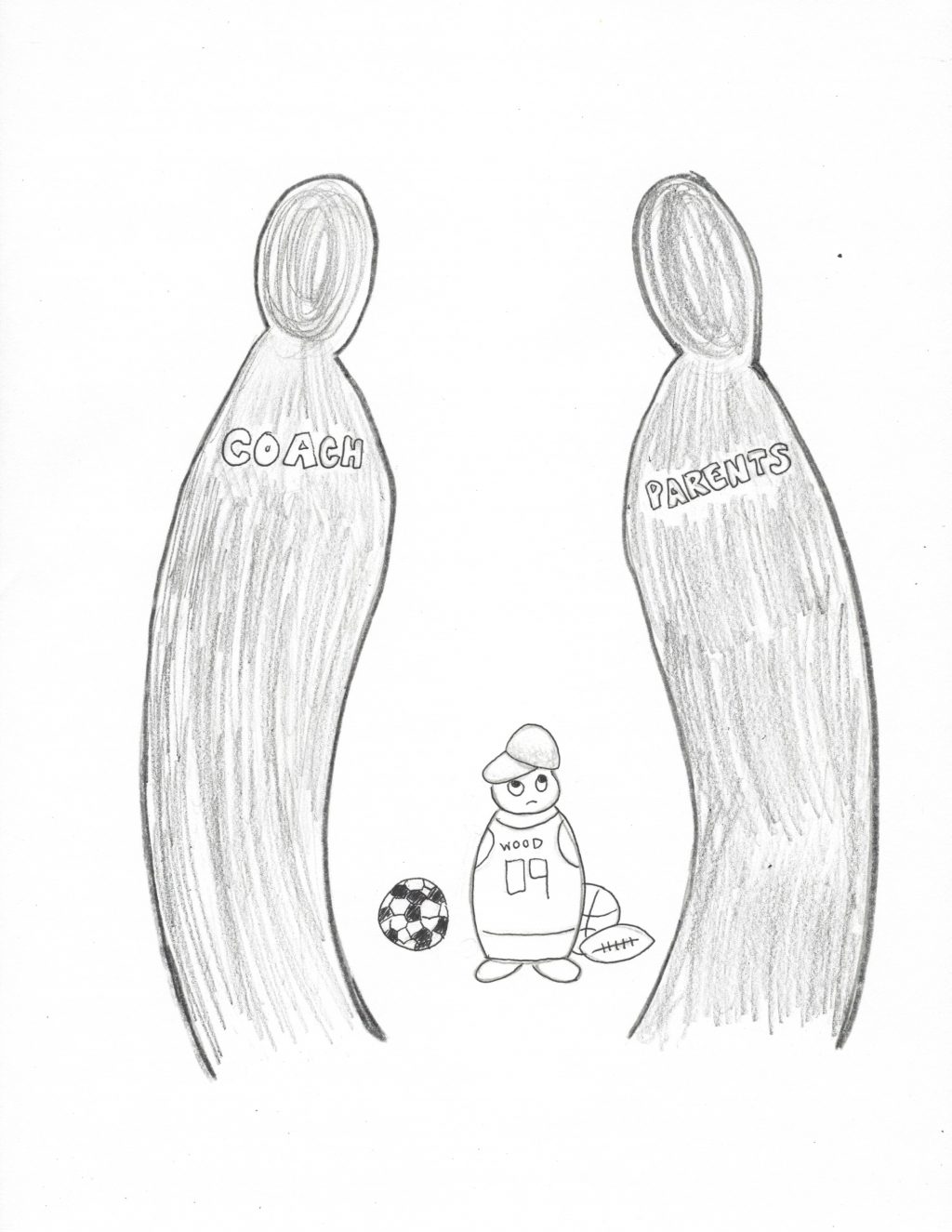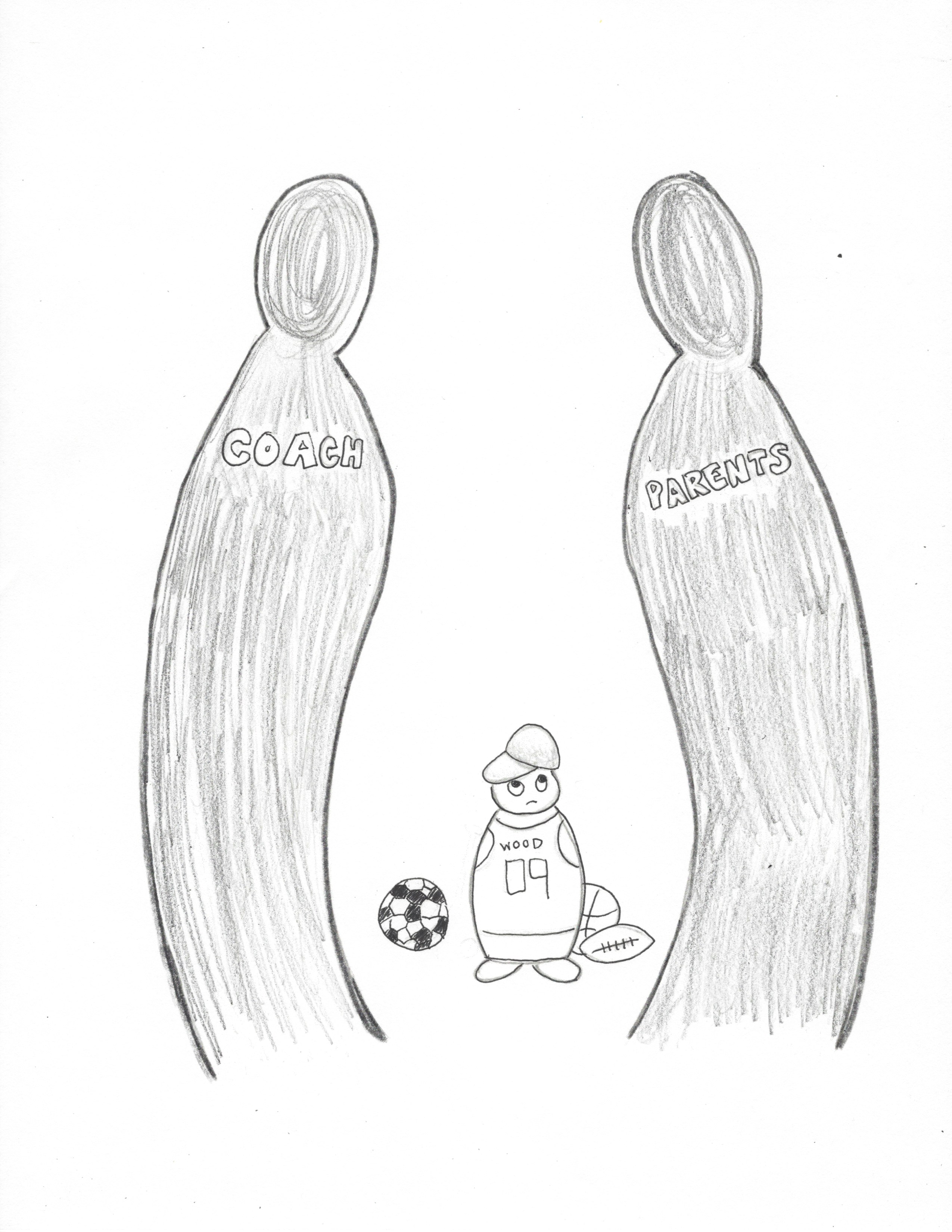In the world of sports a coach has the powerful ability to influence an athlete, but the extent to which this influence is positive or negative depends on the coach’s coaching style. Many athletes in the high school depend on their coach not only for sports advice but also regarding matters outside of practices whether they decide to continue the that particular sport in the future. A proper coach is critical in the success or failure of a sports team especially since sports have become such a large part of students’ lives and has shaped the overall environment of RHS.
In an interview with Brian Quirk, the junior varsity girls volleyball coach, he explained that, “successful coaching is good teaching” and how he stresses that each practice is a mere building block, which will create a foundation for life. In his opinion, a coach’s job is to put players in the best possible spot for success, so they are able to achieve goals for not only themselves but for their team as well. He stresses creating relationships within the team, because these relationships create a strong bond, which helps in games in the end. Mr. Quirk compared these skills to what students learn in his project adventure class since both focus on making individuals comfortable with others and supported.
Another interesting point he brought up was the idea that every team has their “X’s and O’s”; the basic skills to have success in their sport. He claimed that many coaches demand actions from their athletes which causes them to “view playing as a job”. This is why he emphasizes to his athletes that no matter the outcome, he wants them to think of the question: “How can we play our best based on what we can control?”
In the world of sports a coach has the powerful ability to influence an athlete, but the extent to which this influence is positive or negative depends on the coach’s coaching style. Many athletes in the high school depend on their coach not only for sports advice but also regarding matters outside of practices whether they decide to continue the that particular sport in the future. A proper coach is critical in the success or failure of a sports team especially since sports have become such a large part of students’ lives and has shaped the overall environment of RHS.
In an interview with Brian Quirk, the junior varsity girls volleyball coach, he explained that, “successful coaching is good teaching” and how he stresses that each practice is a mere building block, which will create a foundation for life. In his opinion, a coach’s job is to put players in the best possible spot for success, so they are able to achieve goals for not only themselves but for their team as well. He stresses creating relationships within the team, because these relationships create a strong bond, which helps in games in the end. Mr. Quirk compared these skills to what students learn in his project adventure class since both focus on making individuals comfortable with others and supported.
Another interesting point he brought up was the idea that every team has their “X’s and O’s”; the basic skills to have success in their sport. He claimed that many coaches demand actions from their athletes which causes them to “view playing as a job”. This is why he emphasizes to his athletes that no matter the outcome, he wants them to think of the question: “How can we play our best based on what we can control?”
The coaching staff of the RHS sports teams are immensely gratified for their work, and their effort is demonstrated in the success of their teams. Each coach has the incredible ability to change an athlete’s mindset, and after experiencing a full year of sports, I can attest that a coach’s coaching style can change an athlete’s perspective on sports, and be a large contender in whether they enjoy or dislike the sport. An athlete’s passion for their sport can solely depend on one person’s influence on them, and this is why many coaches strive to not only be a coach in sports, but a coach in life. After talking to Mr. Quirk, one aspect that can differ between a “good” coach and a “great” coach is whether their coaching not only changes the individual as an athlete but transforms them as a person.
Emily Sue
staff writer
Graphic: Lia Vaynshteyn


